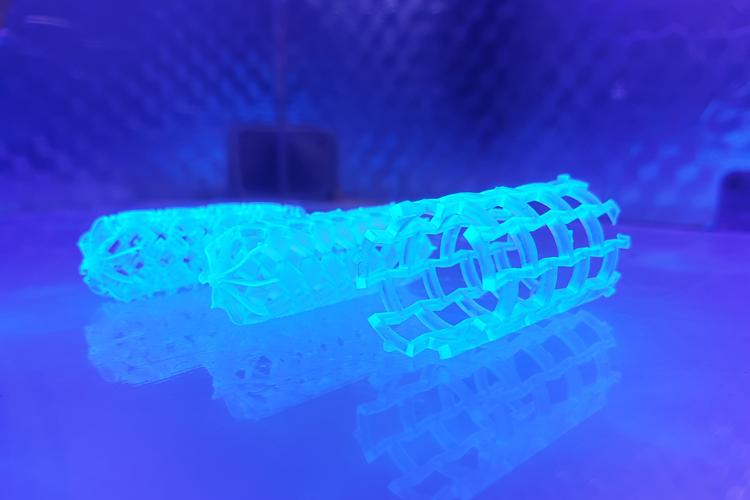IQS researchers are leading the Polycoarct project with the aim of improving current solutions to paediatric aortic coarctation, adapting them to children’s growth, and reducing the number of new surgical interventions.

Aortic coarctation is an abnormal narrowing of the aorta, the main artery in our bodies. It is a type of chronic defect that occurs in newborns that, if left untreated, can lead to other short- or long-term health problems for patients such as kidney or heart failure, among others. Treatment for this defect can be carried out through two approaches: open-heart surgery or implanting an endovascular stent, with frequent surgical reinterventions necessary.
This aortic defect occasionally occurs in newborns due to a lack of maturity of the germinal cells that remain at a foetal size, leaving a narrow and hardened artery. As this involves a paediatric defect, children's arteries are very small, as are the stents, so when the child and their aorta grows, the implanted stents become small. Because it is challenging to keep up with a child's growth rate, various reinterventions and frequent stent openings are required.
Normal aorta (left) and coarctation of the aorta (right)
The Polycoarct project has arisen within this context and aims to design and develop new polymeric stents adapted to the arterial growth needs of children affected by aortic coarctation, thus reducing or avoiding new surgical interventions.
 |
| Normal aorta (left) and coarctation aorta (right) |
The project is being conducted by a group of researchers led by Dr Jordi Martorell, coordinator of the Vascular Engineering and Applied Biomedicine Group (GEVAB) at IQS, along with the participation of GEVAB Group researchers Dr Mercedes Balcells and Dr Jose J. Molins, Dr Andrés García with the Industrial Products Engineering Group (GEPI), and Dr Marta Pergueroles with the Biomaterials, Biomechanics and Tissue Engineering Research Group (BBT), experts in the development of biomaterials for cardiovascular applications with the Polytechnic University of Catalonia.
It represents an ambitious project that can only be tackled from a multidisciplinary perspective through contributions from engineering, chemistry, materials science, vascular biology, and medicine. For this reason, the three-way collaboration between IQS, MIT, and the UPC is essential for success. In addition, the project features external support from the Sant Joan de Déu Hospital in Barcelona and the Boston Children's Hospital.
IQS Contributions
Thanks to their experience, IQS researchers will create a CAD-CAM platform to replicate different types of coarctation and design and print additive manufacturing/3D stents that fit their geometry.
The second phase will involve manufacturing polymeric stents with an auxetic design. Finally, the new stents will be tested to ensure they are biocompatible, promote reendothelialization, and prevent thrombosis, in addition to testing for the possibility of implanting them in vivo.
IQS-MIT collaboration
IQS-URL and MIT have a long history of collaboration for international student and researcher exchanges, which had been paused due to the Covid-19 pandemic. With Polycoarct, the opportunity to revitalize and promote these exchanges and partnerships between both institutions is once again possible.
The Polycoarct project has received funding within the "Knowledge Generation Projects" call for grants under the framework of the State Program to Promote Scientific Research and Transfer, part of the Scientific, Technical and Innovation Research Plan 2021-2023.










